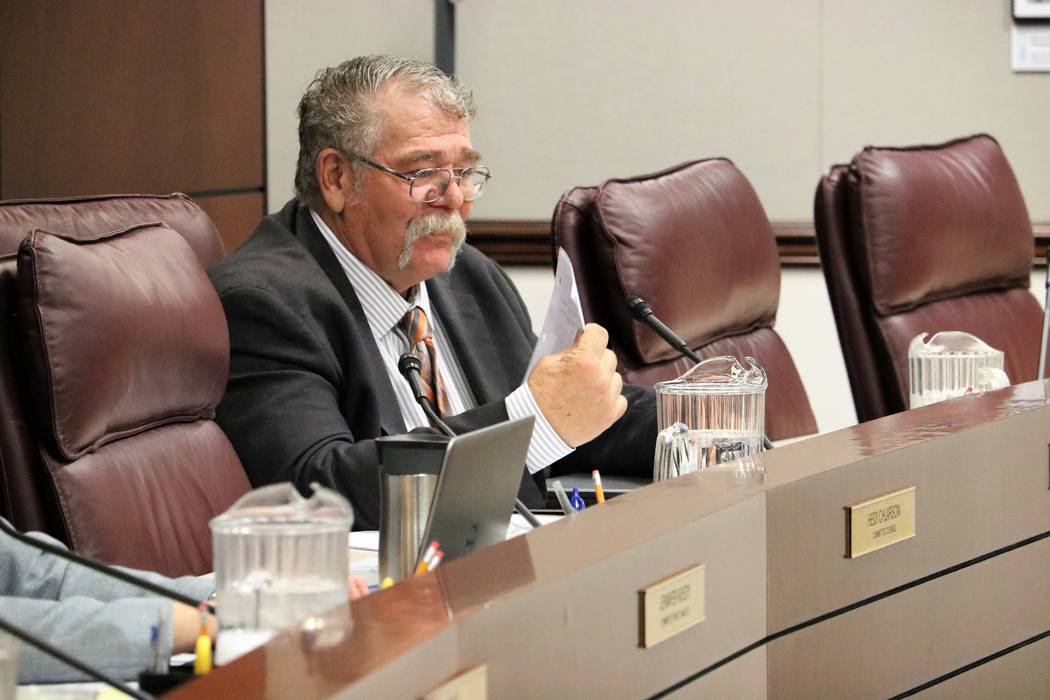Segerblom bill proposes change to Nevada open records law
CARSON CITY — Nevada’s public records law might get an overhaul.
State Sen. Tick Segerblom, D-Las Vegas, has worked on a bill with the ACLU of Nevada to clarify the public records law on fronts that include how long a government agency has to respond and how fees are assessed.
“To the extent that the government is using fees and costs to prevent people from getting what they’re entitled to, I think that’s something we ought to address,” Segerblom told the Senate Government Affairs Committee, which heard Senate Bill 170 on Wednesday.
Current law requires an agency to respond in five business days with the records or to provide a date on which they will be available.
The bill would require an agency unable to comply within five days to provide a date that falls within 15 business days of the request, or within 35 business days if the agency cannot comply with 15 days. Currently, there’s no set time frame for beyond five days.
Holly Welborn, a lobbyist for the ACLU, said agencies have different staffing and resources, which results in different interpretations of when an agency is using extraordinary resources to comply.
In the end, it comes down to what a requester is willing to pay for.
“It’s this question of money,” Welborn said. “I think that’s really what we’re discussing now.”
Barry Smith, executive director of the Nevada Press Association, said the measure is a much-needed step for transparency not only for journalists but also the public at large. Clarity is needed because the only recourse is to go to court, Smith said.
“We’re acting on behalf of the general public, who should have access to this information as rapidly and cheaply as possible,” Smith told the committee.
Lobbyists representing government agencies oppose the bill, noting they work hard to process thousands of requests a year. The list included the Metropolitan Police Department, Clark County School District and the cities of Henderson and North Las Vegas.
Chuck Callaway of the Metropolitan Police Department said the agency frequently gets broad requests that are “very time consuming.” The agency tries to work with requesters to narrow the records, but often they don’t cooperate, he said.
Ryann Juden, a lobbyist with North Las Vegas, said newspapers are a business that make money with stories, not an operation run by “nuns in a convent.”
“When they have these stories that they put out there, they sell ads,” he said. “They attract eyeballs.”
The ACLU has suggested language in the bill that would require a public agency to take steps to help a requestor that include describing the information technology and physical location of the records, provide suggestions to help with access.
The ACLU also has proposed language that would make legislators’ emails and calendars a public record, provided they were created during a legislative session. But Segerblom said at the hearing that doesn’t appear realistic because the Legislature’s legal staff has indicated lawmakers don’t have that ability.
The committee took no immediate action on the bill.
Contact Ben Botkin at bbotkin@reviewjournal.com or 775-461-0661. Follow @BenBotkin1 on Twitter.
RELATED
Should Nevada government officials' private devices be public? Many leaders say yes
Nevada legislators not inclined to open their communications to the public



















